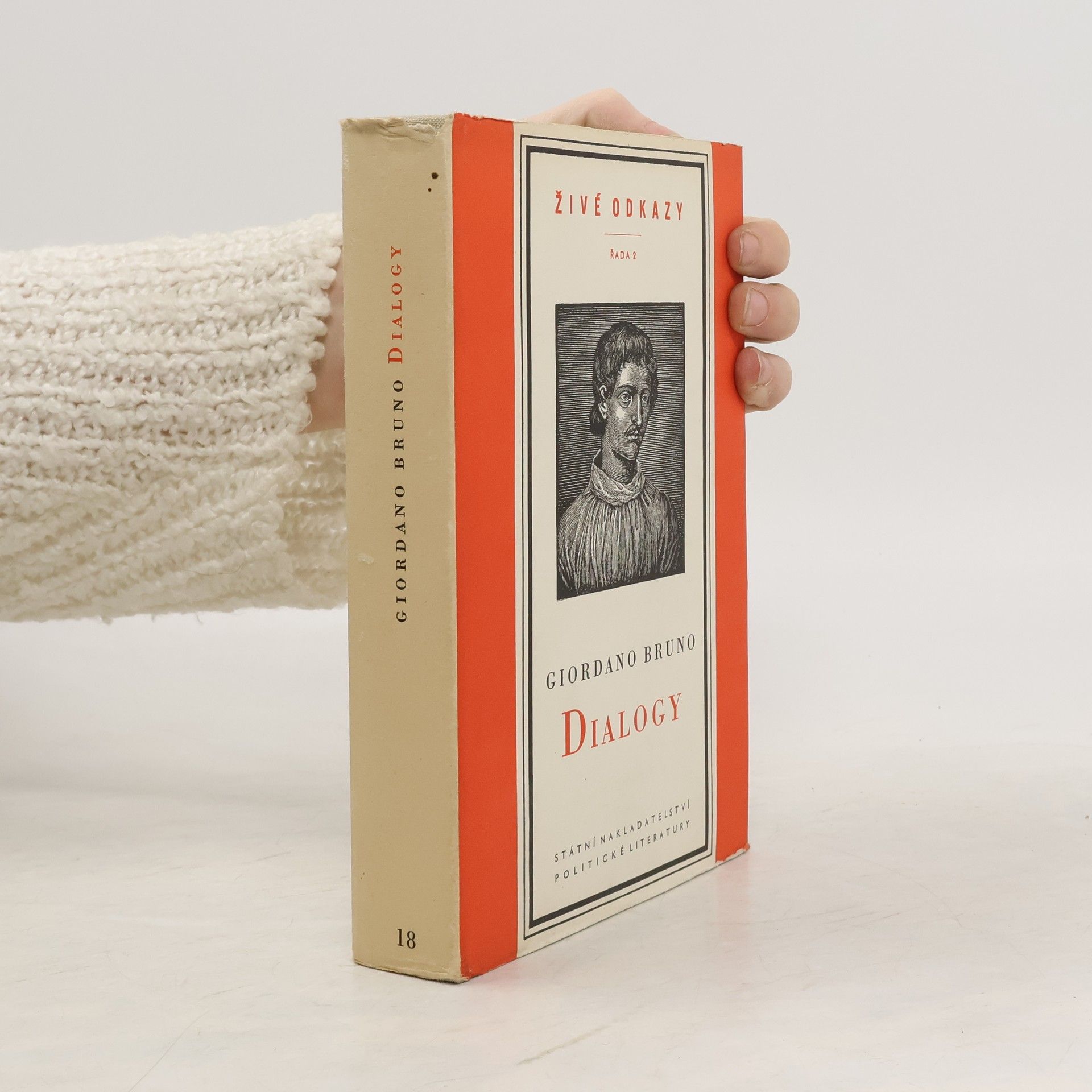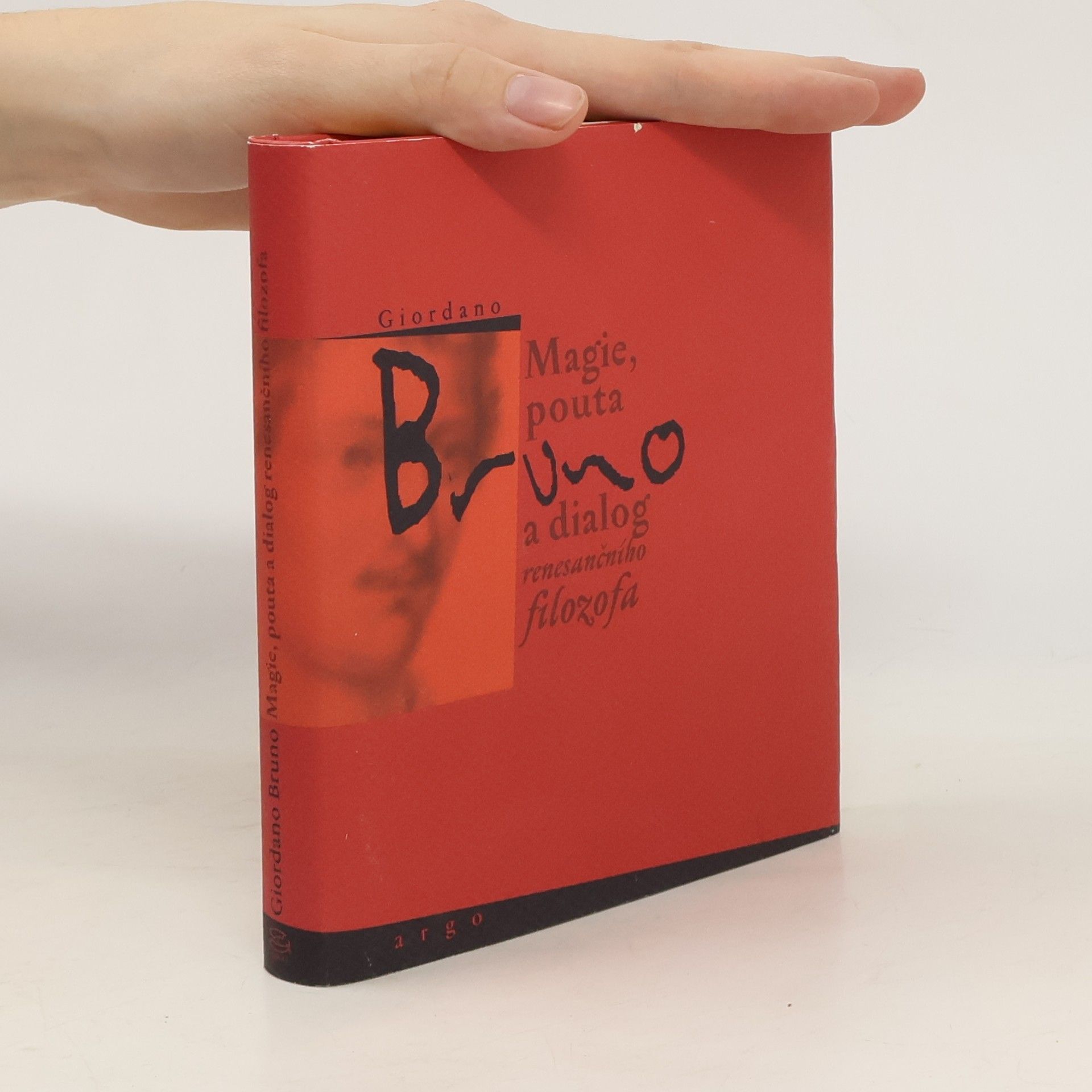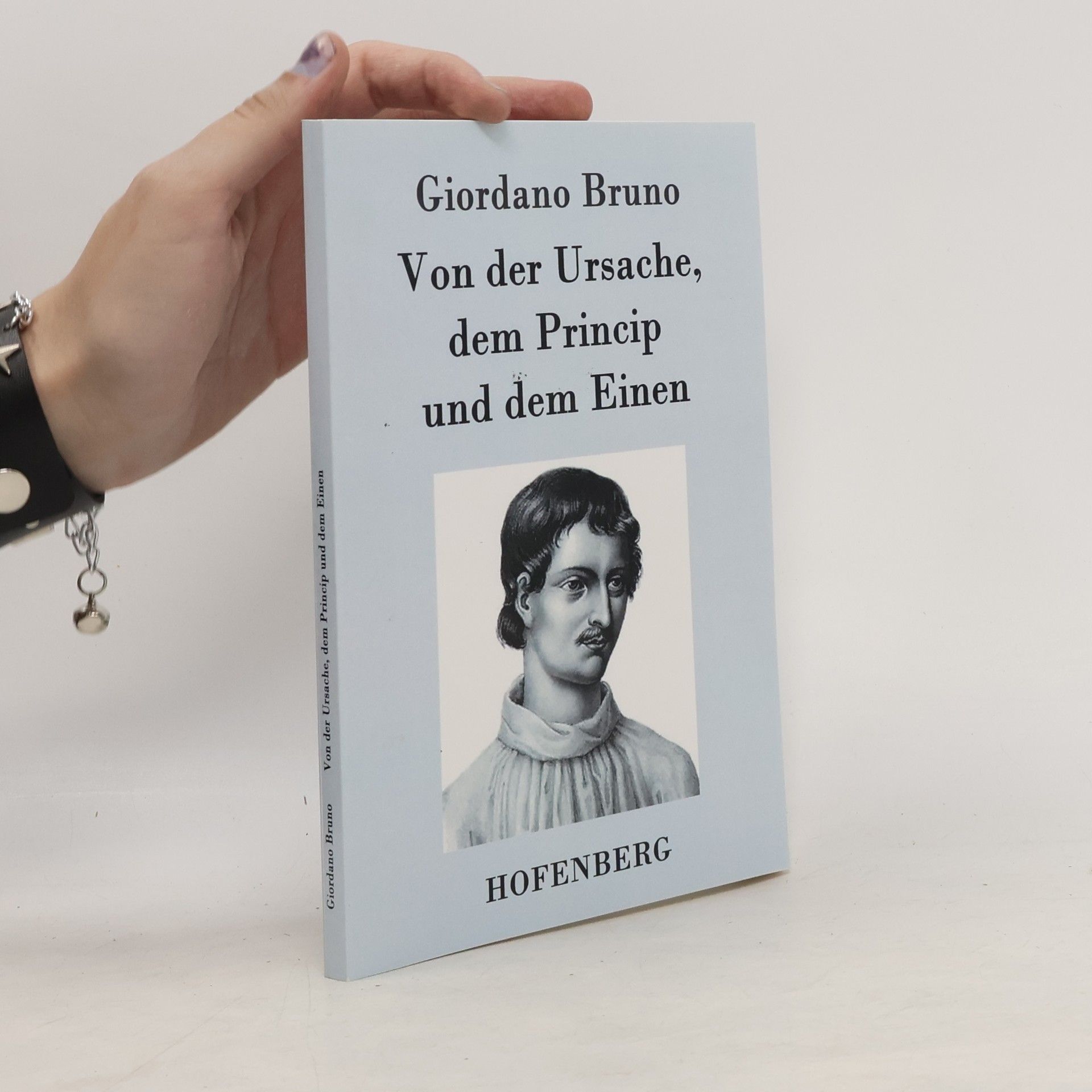Giordano Bruno was an itinerant Italian friar who was burned at the stake in 1600 for heresies, which included his rejection of the Ptolemaic cosmology. Of his important writings, 'La Cena de le ceneri' was one of the first works in which Copernican theory had impact outside the sphere of the natural sciences. Arguing for the physical reality of the infinite universe with no centre, Bruno sought to prove that each man is every man, that conflict would be resolved if all men accepted the unifying potential of his hermetic religion. Using this radical cosmology, Bruno sought to heal the secular and religious wounds of sixteenth-century Europe.
Giordano Bruno Boeken
Deze Italiaanse filosoof en geleerde staat het best bekend als voorstander van de oneindigheid van het universum. Zijn kosmologische theorieën gingen verder dan het Copernicaanse model en identificeerden de zon als slechts één van een oneindig aantal hemellichamen. Hij schreef ook uitgebreid over de kunst van het geheugen en onderzocht een kwalitatieve benadering van wiskunde.







On the Composition of Images, Signs & Ideas
- 368bladzijden
- 13 uur lezen
The book explores the life and ideas of Giordano Bruno, an influential Italian philosopher and cosmologist. It delves into his groundbreaking theories, which expanded upon the Copernican model by suggesting that stars are distant suns with their own planets, potentially harboring life. Bruno's concept of cosmic pluralism and his assertion of an infinite universe without a center challenge conventional views of his time, positioning him as a pivotal figure in the history of science and philosophy.
Giordano Bruno critiques the moral failings of both ancient and modern societies, portraying a mythical drama that advocates for universal reform. Through this narrative, he aims to replace prevalent vices with corresponding virtues, emphasizing the need for a transformative moral vision. The work serves as a philosophical exploration of ethics and the potential for societal improvement.
The book features the Italian text of Giordiano Bruno's seminal work alongside its English translation, allowing readers to engage deeply with the original language and its nuances. This dual-format presentation highlights Bruno's philosophical ideas and poetic expressions, making it accessible to a wider audience. The work delves into themes of heroism and the human experience, showcasing Bruno's unique perspective and contributions to Renaissance thought.
První vědecky důkladné vydání tzv. metafysických "Dialogů" v češtině obsahuje nejvýznamnější tři dialogy velkého bojovníka za materialistický světový názor: Večeře na Popeleční středu, O příčině, principu a jednom, O nekonečnu, universu a světech. Text je doprovozen poznámkami, znichž část vypracoval J.B. Kozák a část byla převzata ze sovětského překladu. Příloha obsahuje překlad italských a latinských dokumentů o výsleších G. Bruna před benátskou inkvisicí, o jeho odsouzení generálními inkvisitory a upálení.
Über das Unendliche, das Universum und die Welten
- 242bladzijden
- 9 uur lezen
In fünf Dialogen erörtert der Nolaner die Frage, »ob die Welt endlich ist oder unendlich«. Bewiesen wird - gegen den damals noch herrschenden Aristotelismus - die Unendlichkeit der Welt, d. h. es gibt unendlich viele Welten. Diese Erkenntnis führte zu einer völlig neuen (modernen) Naturphilosophie, die eine fortwährende Veränderung bei gleichbleibender Gesamtsubstanz propagiert.
Svíčkař
- 112bladzijden
- 4 uur lezen
Jediná hra, kterou napsal osobitý a neohrožený renesanční intelektuál, který skončil pro své názory na hranici. S neodolatelným smyslem pro humor a pozoruhodnou společenskou kritičností vypráví několik souběžných příběhů pitoreskních postav tehdejší Neapole. Hra nese název podle postavy jejíž příběh je dominantní, Bonifacia označeného jako „svíčkař“. Nejde o výrobce svíček, ale o ženatého homosexuála, který se zamiluje do kurtizány. Čtenář v textu najde mnohé z toho, co bezpochyby pobouřilo vatikánské soudce, jejichž milost Giordano Bruno nemohl očekávat. V překladu Zdeňka Digrina vychází jako 185. svazek edice D.
Von den sechs italienischen Dialogen, die Giordano Bruno in den Jahren 1584-1585 in London veröffentlichte, ist Die Kabbala des Pegasus (1585) der fünfte. Die Kabbala steht in engem Zusammenhang mit dem vierten Dialog, dem Spaccio della bestia trionfante, da sie die dort begonnene „Himmelsreform“ zu Ende führt, jedoch indem sie in einem ambiguen Spiel von Spiegelungen die theoretische Perspektive nahezu umkehrt. Die Kabbala gehört zu den radikalsten Texten Brunos: Hier erscheint er mit „offenem Visier“ und attackiert sowohl Christentum als auch Aristotelismus und Skeptizismus. Die Übersetzung wurde für diese Ausgabe neu angefertigt. Sie ist die erste deutsche Übersetzung der Kabbala nach derjenigen von Kulenbeck aus dem Jahre 1909.
Magie, pouta a dialog renesančního filosofa
- 189bladzijden
- 7 uur lezen
Vzdělaný dominikán, filosof (ovlivněný antikou, Mikulášem Kusánským a Bernardem Telesiem), představitel renesančního hermetismu, básník a komediograf (upálený jako kacíř) ve svých spisech formuluje filosofický a vědecký názor, který představuje vrchol renesančního myšlení. Jeho dvě motta: „Co je to, co je? Je to, co bylo. Co je to, co bylo? Je to, co je. Nic nového pod sluncem.“ a „Nejhlubší magií je umět vytěžit opak poté, co jsme nalezli spojující bod.“ vyjadřují, že ho zajímají především protiklady reality, záhady a dramata života a světa, které chápe jako dynamickou jednotu. Tento zakladatel panteistické přírodní filosofie pobýval roku 1588 také v rudolfínské Praze.
Giordano Bruno: Von der Ursache, dem Princip und dem Einen Erstdruck unter dem Titel De la causa, principio, et uno, Venedig (d. i. London) 1584; erste deutsche Ubersetzung in: T. A. Rixner und T. Siber, Leben und Lehrmeinungen beruhmter Physiker, Sulzbach 1824, Heft 5. Der Text folgt der Ubersetzung durch Adolf Lasson (1872 u. o.), die aus dem Widmungsschreiben nur die abschlieenden Gedichte enthalt. Neuausgabe mit einer Biographie des Autors. Herausgegeben von Karl-Maria Guth. Berlin 2016. Textgrundlage ist die Ausgabe: Giordano Bruno: Von der Ursache, dem Prinzip und dem Einen. Aus dem Italienischen ubersetzt und mit erlauternden Anmerkungen versehen von Adolf Lasson. Dritte verbesserte Auflage, Leipzig: Durr, 1902 (Philosophische Bibliothek, Bd. 21). Die Paginierung obiger Ausgabe wird in dieser Neuausgabe als Marginalie zeilengenau mitgefuhrt. Umschlaggestaltung von Thomas Schultz-Overhage. Gesetzt aus der Minion Pro, 11 pt.


